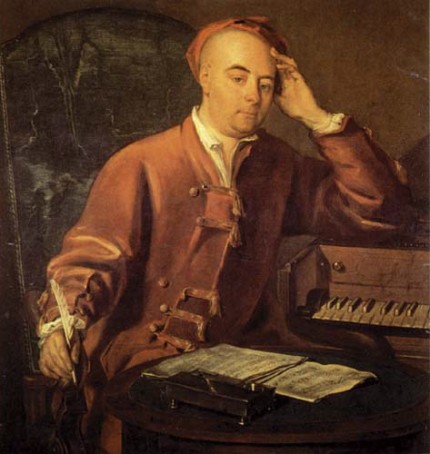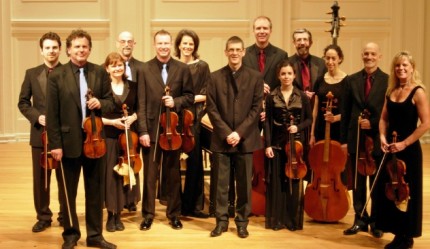Amid rough moments, Baroque Band brings worthy advocacy to Handel rarity

Handel’s first oratorio La Resurrezione, written when he was just 23 and premiered in 1708, will be making the rounds in several performances over the next few days. This colorful two-part liturgical drama was written for Easter during the opera ban in Rome, and the music is an overlooked treasure (though bits and pieces would later appear in parts of Handel’s Water Music and the operas Agrippina and Amadigi).
On Thursday night, Baroque Band concluded its fourth season with a persuasive account of this rich source material at Hyde Park Union Church. With characteristic enthusiasm, artistic director Garry Clarke alertly conducted the two-hour banquet of arias, recitative, choruses and instrumentals. The five singer-soloists each brought unique strengths to their roles, variously representing Lucifer, an angel, Mary Magdalene, Mary Cleophas and St. John the Evangelist. The narrative arc is a loose telling of the Easter story, but Carlo Capece’s playful libretto proved to be a singer’s treat.
Unfortunately the jubilant spirit of the opening bars was quashed by what appears to be a couple of recurring issues at Baroque Band concerts: cohesion and confidence of tone. The period-instrument ensemble can turn out ravishing results but they often do so at the expense of a complete performance. While stylishness and scholarship are the ensemble’s trademarks, unpolished mechanics too often undermine their efforts. Several prominent stretches of brass playing were egregiously sloppy and strings came away sounding brittle and hesitant. Professionals that they are, the instrumentalists adjusted and produced a satisfying performance. Yet these concerts would be more rewarding if sufficient rehearsal time was scheduled to sort out such flaws beforehand. (David Schrader’s excellence on harpsichord provided a welcome de-facto assistant conductor.)

At first the superb British soprano Diane Atherton projected inconsistently—perhaps as a consequence of her colleagues’ rough start—but her cheerful and dexterous vocals came through as a defiant counterpoint to Lucifer, as played by the baritone Mischa Bouvier. The two shared a booming duet (Woe is me! Have I heard aright?) in the second act that was especially forceful and memorable. It’s funny that Handel would include Lucifer in the final celebratory chorus (Let Praise be given in Heaven and Earth) but Bouvier’s fiery baritone was certainly welcome.
Atherton’s soprano partner Josefien Stoppelenburg was primo as Mary Magdalene, her voice imbued with the soft twinkle of twilight. Her aria Jesus was not afraid weaved seamlessly around dueling flutes and her impassioned duo with countertenor Ian Howell (Cleophas) did justice to Sweet nails, beloved thorns. Howell boasts a sweetly agile yet powerful voice and he sang with lyrical splendor.
Even as a native New Yorker, James Kryshak’s warmly Italianate tenor was ideally suited for the role of Giovanni, and he rendered this disciple of Christ a sunny and towering figure.
Early technical issues aside, Baroque Band’s deeply entrenched love of this music is always infectious and their recently announced schedule for their upcoming 5th anniversary season promises more rarities yet.
The program repeats 7:30 p.m. Saturday at the Music Institute of Chicago in Evanston and 7:30 p.m. Wednesday at Symphony Center’s Grainger Ballroom; baroqueband.org; (312) 235-2368.
Posted in Uncategorized




